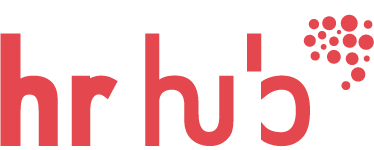The Art of Boolean Search
Finding the right candidate for the job is always a challenge.
If in 1995 recruiters were doing this by phone, fax or post, nowadays, thanks to technology, we all have have access to different social media platforms, including Facebook or LinkedIn. The thing is, even if LinkedIn has a great professional database, we have to admit that is not enough to have a premium account or thousands of connections. At some point, you’ll feel that for some complex profiles, the results are not quite as specific as you’d like. You’ll need a differentiator.
Sourcing is probably the most important part of the recruitment process – is the step that can have an important impact on all of our KPI’s: time to fill, quality of hire, recruitment budget and so on. Apart from that, it’s getting more and more difficult to source, as both LinkedIn and other recruitment tools are considering limiting access for unpaid accounts.
This is why we decided that an intro to Boolean Search event will be useful for our community. Gabriela Vasile, Senior Recruiter at Oracle with many years of experience in recruitment and with Boolean Search techniques accepted the invitation to be the event’s speaker. During the workshop, Gabriela presented the main principles of Boolean Search and the tricks she has picked up over the years. The participants had the opportunity to practice in real time what they were learning. Everything became really interesting when they realized the importance of a word or different signs in a string.
What is Boolean Search?
Boolean logic is a system of showing relationships between sets by using the words “AND”, “OR,” and “NOT”. The term Boolean comes from the name of the man who invented this system, George Boole. Boolean logic is recognized by many electronic searching tools as a way of defining a search string.
In the end all you have to do it is to use in a creative way the next elements:
Boolean Search Operators
- AND: books AND “online editor” will give results that include both the words. All search results will include both, and any CVs that have either books or “online editor” (but not both) will not appear.
- OR: developer OR programmer. OR provides options into a search. Usage of the OR command allows you to create a list of possibilities for which only one match is important.
- NOT: recruiter NOT “it recruiter”. It is the command of exclusion, in our case the results will be CVs of recruiters and none of them would be an it recruiter.
Boolean Search Modifiers
- ” ” – Quotation Marks are used to capture a phrase that is to be kept intact, in the precise word order stated.
- () – Brackets will be used in creating complex strings: “HR Manager” OR “HR Director”To combine both commands into one search, we use brackets to tell the search engine that these are separate conditions. In order to tell the search engine that we want to see results containing either HR Manager or HR Director and also one of IBM, Oracle we group them like this: (“HR Manager” OR “ HR Director”) AND (IBM OR Oracle)
- * – Asterisk can be used on most resume databases and non-Internet search engines as a root word/stem/truncation search. In other words, the search engine will return and highlight any word that begins with the root/stem of the word truncated by the asterisk.
For example: admin* will return: administrator, administration, administer, administered, etc.
Other:
- site: If you include site: in your query, Google will restrict your search results to the site or domain you specify. For example, [site:ro.linkedin,com] will show only LinkedIn profiles from Romania.
- intitle: The query intitle:term restricts results to documents containing term in the title. For instance, [intitle: resume] will return documents that mention the word “resume” in their title.
- inurl: If you include inurl: in your query, Google will restrict the results to documents containing that word in the URL. For instance, [inurl:pub site:ro.linkedin.com ] searches for pages on LinkedIn in which the URL contains the word “pub”.
- filetype: If you include filetype:suffix in your query, Google will restrict the results to pages whose names end in suffix. For example, filetype:pdf, will only return results which are pdf files.
Golden rules:
- Searching LinkedIn – LinkedIn only supports the basic boolean operators: AND, OR, NOT.
- Google understand boolean even without you having to write all the operators. For example, for AND, you can just leave a space between words; for NOT you can precede the term with a minus (-).
- Google does not make the difference between uppercase and lowercase, so you can just write all your terms in lowercase.
Even though boolean search can get addictive, you do not need or even want to get very complicated in web searching. Searching the web is free, and several simpler searches take less time than a humongous search. Moreover, with complicated searches, you often don’t know which parts of the search worked and which did not.
It is always better to be smart when sourcing and chose the most effective means and tools to do it, always having in mind the type of profile you’re searching for.
We ended the evening sharing our takeaways and driven by the curiosity to see the results of our new sourcing skills.
